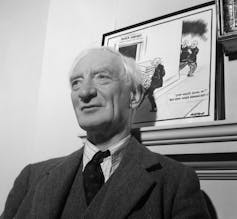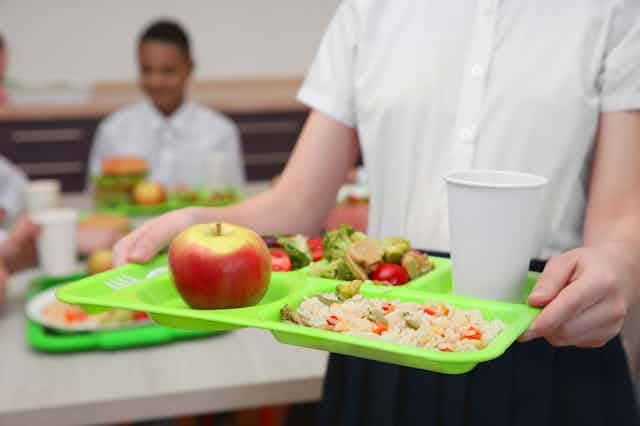The campaign led by footballer Marcus Rashford to provide lunches for children over a school holiday period in England has brought discussions over poverty and state help into the spotlight.
Central to this debate is an ideological position on how people view poverty: whether it is seen to be the fault of individuals and the choices they have made, or the result of policy failings.
The concept of the deserving or undeserving poor stretches back to the Victorian age. However, my research on food poverty shows that these attitudes are still alive today, and very much a part of how those in receipt of social security are viewed.
Who to help
The difference between the deserving and undeserving poor was established in the Poor Law of 1834. The deserving poor were those understood to be hard working people, who through no fault of their own found themselves in hardship. The key word here is that they were hardworking, and so deserved state help.
The undeserving poor, on the other hand, were given this label due to an assessment of their perceived indolence. They were not trying hard enough to relieve their own hardship, which made them less deserving of help.

The introduction of the welfare state after the second world war should have put an end to this division. Following the proposals of economist Sir William Beveridge, welfare was introduced as a right: all workers would contribute and all in need would benefit. However, previous attitudes to poverty persist.
The idea of the deserving and undeserving poor is linked to our understanding of the causes of poverty: whether it is the result of “agency” or “structure”. Agency refers to an individual’s actions, while structure is the forces in society which may have led to an individual’s poverty.
If your poverty is due to no fault of your own – structure – then you are often seen as deserving of help. However, if your poverty is perceived to be of your own making – agency – then many people see this as being less deserving of help.
A fine line
My research on the rise of food banks uncovered an unattractive side to the system of support which surrounds the good work they do. This was linked to the idea of the deserving and the undeserving poor.

Food bank food is generally donated by the public. There was a fear expressed by the participants in my study – both food bank staff and referring agents – that if food banks were seen to be helping too many of the undeserving poor, public donations of food might reduce. As one referral agent commented, “People would say, well, that’s not who I want my food to go to.”
However, the volunteers I spoke with were steadfast in their position that, if someone needed help, they were willing and able to provide it.
The recent parliamentary vote on free school meals over the half term led to comments from both politicians and the general public about the agency of poverty and the deserving nature of the food poor.
One since-deleted Tweet advised that poor people could simply survive by buying a £2 chicken from Aldi and making it last several days. The implication was a failure of agency – that those in poverty do not help themselves.
Others suggested that if people spent money on amenities like Sky TV or a manicure, they did not deserve help to feed their children: essentially, they were the undeserving poor, whose choices had resulted in food poverty. These are some of the comments I regularly encounter when I discuss my research on food poverty with members of the general public.
What is important to reflect upon here, however, is that the reason for choosing a big television to watch Sky on may be because a person’s income is not high enough to take a nice holiday break in the sun. Their respite from the structural drudgery of low income is to relax at night watching Sky TV.
Attitudes like this demonstrate how low-income communities suffer at the hands of those who “punch down”, dispensing judgement or instructing them how to live without having direct experience of poverty. As my research on the food insecure shows, sometimes the public view of agency-driven poverty masks very real structural causes.

